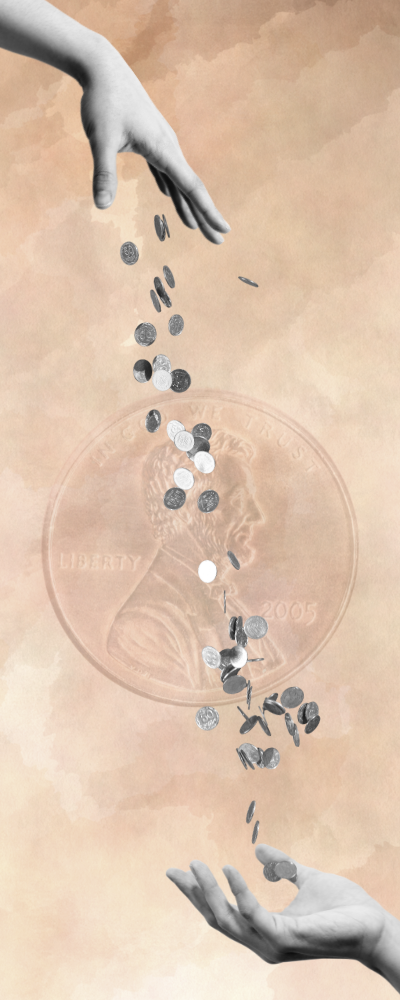Labor Expectations Are Lowering, but It Shouldn’t Be at the Expense Of a Tip
By Emma Pratt
I was rightfully disheartened when the customer in front of me at the ice cream shop opted not to leave a tip. Eagerly leaning over their shoulder, trying to decide on the perfect flavor combination for my double scoop waffle cone, I flinched when they selected the no tip option on a pin pad that gave all the freedom of entering any tip amount. In my astounded state, I exclaimed my disapproval of their choice. My comment went unnoticed amongst the bustling crowd of ice cream goers. I was suddenly reminded that Americans regard the age-old custom of tipping with an age-old mentality.
Customer service workers shouldn’t have to provide exceptional, or even above-average service, to receive a tip. Doing the bare minimum at work is fine, and is even becoming a popular mentality across many fields of labor.

Let’s not get this backward – tipping culture in America is rooted in classism. It comes from attempts to justify unpaid labor. However, the modern fight against tipping is one that pretends to be liberating. It leans on the dark history of tipping in the wrong ways. It’s argued that if employers paid employees enough, then customers wouldn’t be made to feel as though their tip is patching a hole in a broken system. Customers feel their tips supplement an income that should come from the employer. Sure, the system is broken – but when you don’t tip, you’re making the hole bigger – you’re breaking it even more. By denying someone’s ability to earn above minimum wage, you’re dividing the already ginormous gap between customer service workers and the rest of us.
So the sentiment for tippers and non-tippers alike is much the same: we want employees to be paid for their labor. Yet we disagree about the way to get there. If we again fall down the dark tunnel of the history of tipping in this country, we’ll find that tipping is based on the idea of servitude. It can contribute to aristocratic behavior by giving power to one’s ability to judge another’s worthiness of being paid. Gone should be days that we enter a restaurant and decide we’re there to critique the server’s performance; after all, we’re there to make a mutual transaction, not to be hand-fed grapes.
Corporate America is having success in lowering the bar in terms of workplace expectations, without any grievances to a change in salary for employees. The same should happen in industries that rely on tips as a large or main part of employee income, hence the need to tip despite how you rate your waiter’s ability to perform their job.
From the corporate world to the realm of customer service, we’ve all come to realize that too much has been expected of us. We deserve to be paid without going above and beyond. With this shift in workplace mentality, we can turn a page in the history tipping book and liberate people by tipping them; by disregarding the oppressive frame of mind that once created such an act.
Perhaps my fellow ice cream lover felt they were doing the right thing by leaving no tip for the ice cream scooper. They believe in a future which pays fairly, a future that values labor despite judgment about who’s giving it or how well they’re doing it. I believe in these things too. I trudged through the gloomy woods that is the history of tipping in America, and I came out the other side with some change. That’s why I tip the ice cream scooper.
